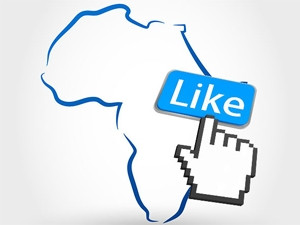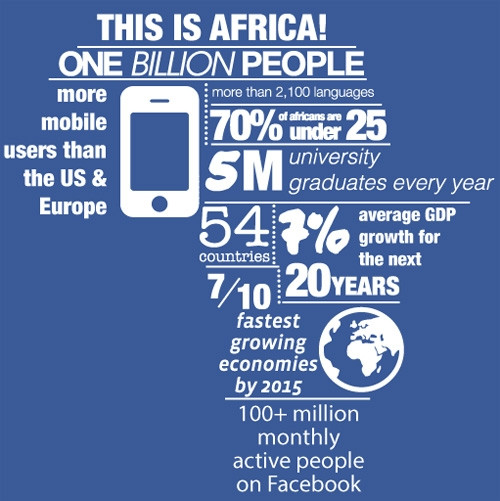
African Internet users account for almost a tenth of the world's biggest social network's user base, thanks to the need the platform addresses on the continent.
Facebook has announced its latest emerging markets milestone: 100 million people in Africa use the site every month, with more than 80% accessing the social network via mobile.
This growth trend is expected to continue, says World Wide Worx MD Arthur Goldstuck, thanks to the need Facebook addresses for a nation that previously had limited options to communicate at a marginal cost.
"The people of Africa have a great need for communication, but have never had the tools for it on a mass basis. Even a phone in its own right does not automatically open communications to one's existing circle. However, once social media is added on top of this tool, it opens access to friends, family, colleagues and, in turn, their friends, family and colleagues, leading to an extended network that truly opens up the world."
According to World Wide Worx's latest social media landscape research, in SA Facebook is the most widely used social networking site, with about 9.4 million users, followed by Mxit (7.4 million), Twitter (5.5 million), LinkedIn (2.7 million) and, lastly, SA-based social network 2go - with 1.1 million active users.
Earlier this year, former communications minister Yunus Carrim recognised the transformative nature of Facebook, saying it was the communication tool of the future. "Whether one lives in a shack in Soweto or a mansion in Sandton, chances are that you're on Facebook or Twitter sharing information with friends and strangers. It's a world few of us would have imagined 20 years ago."
Mobile first
Much of Facebook's local growth can be attributed to the fact that Africa is a mobile first nation. In 2010, the United Nations' International Telecommunications Union said a "social media boom" had begun in Africa and predicted social media would be central to locals' lives, largely driven by mobile.
"Social networking services are not just bringing Internet users into fast-flowing online conversations - social media are helping people follow breaking news, keep up with friends or colleagues, contribute to online debates or learn from others. They are transforming online user behaviour in terms of users' initial entry point, search, browsing and purchasing behaviour.

"Some experts suggest that social media will become the Internet's new search function - predicting that people will spend less time navigating the Internet independently and instead search for information or make decisions based on 'word-of-mouth' recommendations from their friends, the so-called "friend-casting". In the process, social media are changing users' expectations of privacy, acceptable online behaviour and etiquette - fast."
Ovum analyst Richard Hurst notes Facebook has focused heavily on the power of the mobile device lately. "Given the expected growth of smarter mobile devices, we can expect the number of Facebook users to gain significantly over the coming years."
Nicola Mendelsohn, VP of Facebook in Europe, the Middle East and Africa, says in countries like SA and Nigeria, mobile devices are increasingly the way people find new information, and share their new experiences in the world. "We also know that people will experience Facebook in unique ways across the world, especially in high-growth regions like Africa."
Market research firm eMarketer projected in 2010 that just over 600 million people would use their phones to tap into social networks by 2013, compared with 140 million in 2009. Facebook passed the historic milestone of 500 million users on 21 July 2010 - a number that has now grown almost three-fold.
Hurst notes that, in Africa, social networking works in tandem with the African culture of communicating and sharing. Goldstuck calls Facebook a universal tool for global social inclusion.
Share